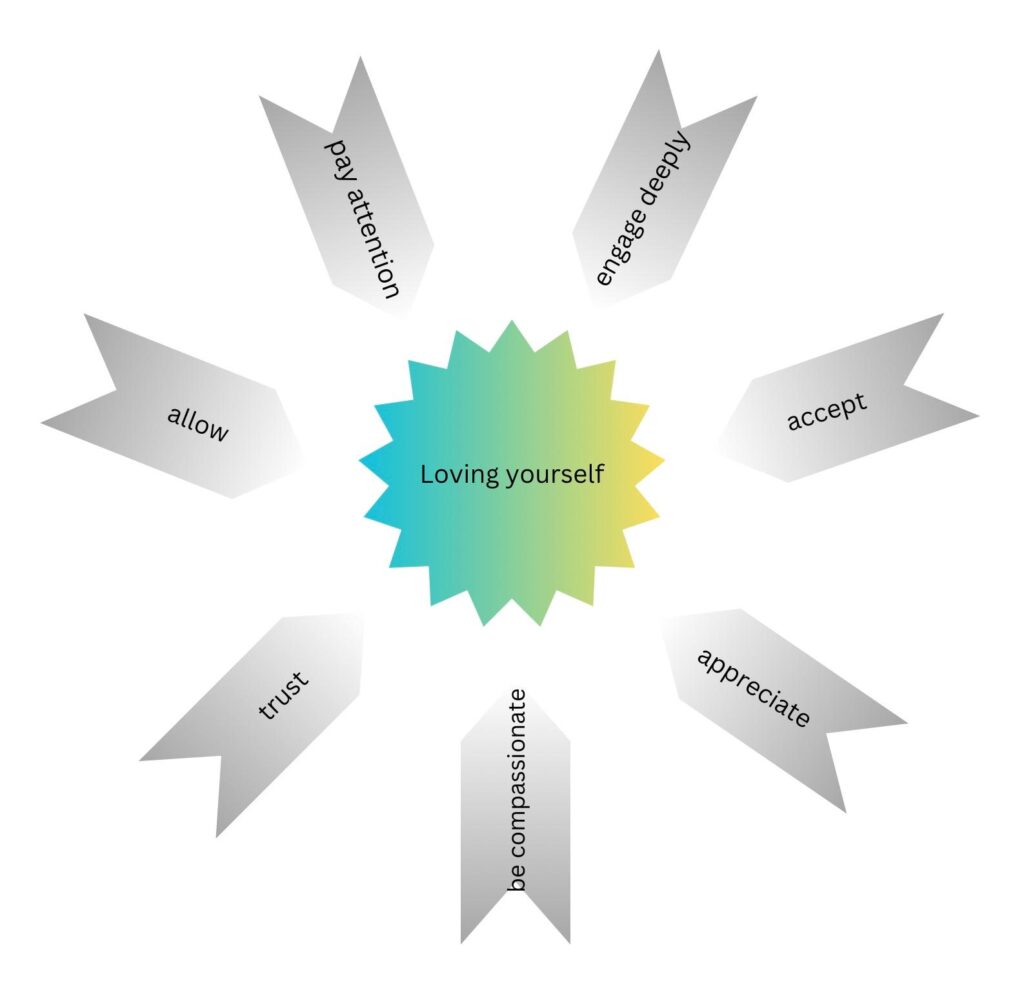We’ve heard the word “mindfulness” so often that we’ve started to forget what it truly means and its impact. It’s become an overused term.
You might even think, “I’ve read so much about this topic—what’s left to learn from this article?” Maybe you won’t learn something new, but you’ll remember what you need to. Or perhaps you’ll simply enjoy reading it. I can’t predict your experience, but I’ll keep writing.
Speaking of learning something new, have you noticed there aren’t many truly different stories around us? In our personal, professional, and social lives, we often repeat the same narratives. Only the players and settings change, while our feelings remain the same. That’s a sign of mindlessness.
Let’s start with the negative. If we’re living in an action-reaction loop without fully immersing ourselves in the moment, we’re experiencing mindlessness.
For example, imagine walking into your favorite store at the mall. Red sale signs—an energizing color—adorn the windows, inviting you in. The scent, music, and atmosphere draw you further. Thirty minutes later, you walk out with bags in both hands. Did you really consider your needs, budget, or emotions in that moment? Likely not. That’s mindlessness.
Now, let’s talk about mindfulness. Mindfulness is a state, not a tool. Everything we do in daily life—shopping, eating, walking, reading, chatting, working, creating art, texting, self-care, meditating, or practicing yoga—can be a tool for mindfulness. What matters is how we experience these activities.
It’s not about what we do but how we do it. In essence, every moment can be lived with mindfulness.
Imagine a gardener tending to their garden—planting, weeding, pruning, sometimes uprooting, sometimes sowing seeds. The garden, constantly evolving, represents mindfulness in this metaphor. Meditation, on the other hand, is the gardener’s tools (like a rake or hoe). These tools help the gardener maintain the garden, clear away weeds, and nurture growth. Similarly, meditation is a tool to cultivate and enhance the “garden” of mindfulness. Just as a gardener needs different tools, there are many ways to experience mindfulness.
Mindfulness is staying present, aware, and open to all the data we perceive without judgment.
Deep Connection and Mindfulness
If you’ve seen the movie Avatar, you might recall the Na’vi people greeting each other with “Oel ngati kameie” (“I see you”). Here, “seeing” isn’t just with the eyes—it’s about seeing with awareness, expressing a deep connection. This beautifully illustrates the essence of mindfulness: truly seeing ourselves, our surroundings, and our emotions.
The Origins and Evolution of Mindfulness
Mindfulness is an ancient concept. In Buddhist teachings, it’s defined as “conscious awareness of the present moment” and is central to Vipassana meditation.
In yoga, mindfulness aligns with the eightfold path (Ashtanga Yoga) described in Patanjali’s Yoga Sutras. This path is more than physical postures; it offers a holistic philosophy of life, with mindfulness principles woven throughout. The concept of a neutral mind (shushumna) in yoga reflects the Buddhist idea of equanimity—observing without attachment or identification. A neutral mind, achieved through mindfulness, allows us to observe without clinging to the positive or rejecting the negative.
In the modern world, mindfulness gained popularity in the 1970s through the work of Dr. Jon Kabat-Zinn. By grounding Buddhist practices in science, he developed the Mindfulness-Based Stress Reduction (MBSR) program, which uses mindfulness meditations to address stress, anxiety, and chronic pain. This brought mindfulness into mainstream health and well-being.
Mindfulness and Its Effects on the Nervous System and Brain
Mindfulness practice balances the nervous system, reducing the “fight or flight” response and activating the parasympathetic system, which promotes relaxation and healing. It also has profound effects on the brain:
- Prefrontal Cortex: Associated with conscious thought and attention; mindfulness strengthens this area.
- Amygdala: Responsible for emotional responses; mindfulness reduces its overactivity.
- Hippocampus: Involved in memory and processing experiences; mindfulness enhances its function.
In terms of brainwaves, regular yoga and meditation practitioners experience:
- Increased Alpha Waves: Calms and relaxes the mind.
- Shift to Theta Waves: Linked to creativity and insight.
- Gamma Wave Synchronization: Supports better communication and integration between brain regions.
Why Is Mindfulness Important?
Mindfulness deepens our life experiences. It helps us step out of the action-reaction cycle and brings meaning to our lives:
- Reduces Stress: Makes daily stress easier to manage.
- Enhances Emotional Intelligence: Improves the ability to recognize and regulate emotions.
- Boosts Focus: Enables more productive work.
- Supports Physical Health: Lowers blood pressure and strengthens immunity.
- Aids Healing and Transformation: Helps heal past traumas and wounds.
Practical Tips
Start with just five minutes a day in silence, observing whatever arises. Acknowledge your sensations, emotions, and thoughts with a simple “Hello, I see you.” Or, like in Avatar, say, “Oel ngati kameie.”
You could even write this phrase and stick it on your fridge, computer, or another visible spot. Share its story with those who ask—it might inspire you to practice more.
In daily life, especially during automatic reactions, observe yourself. Notice the situations that trigger certain conversations, behaviors, eating habits, or shopping patterns. You might still act the same way, and that’s okay. But acknowledging with “Oel ngati kameie” is significant. Small steps can build this practice.



Pingback: The Door to What Lies Beyond - Eda Uzuncakara